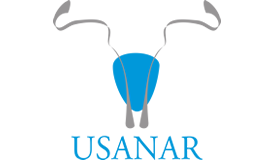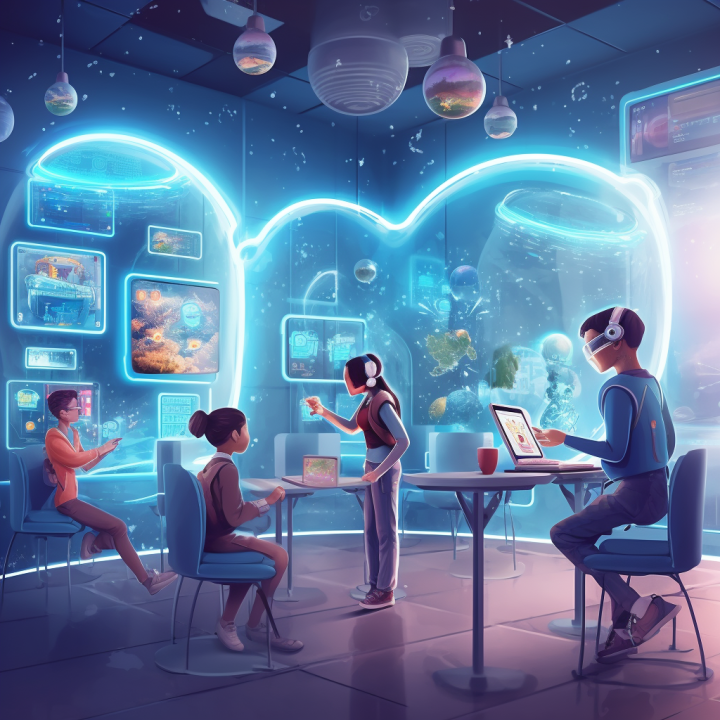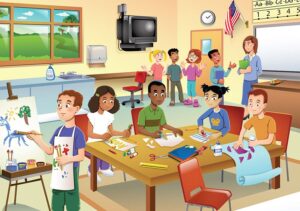In a world where change is constant and technology continues to transform the way we live, it is essential to explore the evolving pedagogies and innovative learning methods that are shaping the future of education. As we venture into the intricate realms of education, we cannot ignore the transformative power of knowledge and its profound impact on individuals and society as a whole.
A Shift Towards Experiential Learning
One standout teaching method that has gained momentum in recent years is experiential learning. Gone are the days of rote memorization and passive listening in classrooms. Today, educators are embracing interactive and immersive approaches to engage students and facilitate deep learning experiences.
Experiential learning not only empowers students to actively participate in their own education but also fosters critical thinking, problem-solving skills, and creativity. By connecting theory to practice, learners can apply what they’ve learned in real-life situations, making education relevant and meaningful.
Lifelong Learning: A Gateway to Growth
Beyond classroom walls, we find the concept of lifelong learning gaining traction. In an era marked by rapid technological advancements and changing work dynamics, the need to continuously acquire new knowledge and skills is paramount. Lifelong learning is no longer a luxury but a necessity.
With the democratization of information through the internet, learning opportunities are readily accessible to all. Online courses, webinars, and educational resources allow individuals to pursue their interests and passions at their own pace, regardless of age or geographical location. Embracing lifelong learning not only empowers individuals but also contributes to personal growth, professional development, and societal progress.
Navigating the Dimensions of Health
As we delve deeper into the intricacies of education, it is crucial to recognize the significant role that health plays in overall well-being and academic achievement. The connection between physical and mental health and academic performance is undeniable, and it is essential to prioritize holistic approaches to education that address the multifaceted dimensions of health.
Innovative workout regimes, such as incorporating exercise breaks into the school day or integrating physical activity into the curriculum, have shown promising results in enhancing cognitive function, reducing stress, and improving overall health. Similarly, recognizing the impact of nutrition on learning outcomes has led to a shift towards healthier school meal options and education around the importance of balanced diets.
Embracing Wellness Trends and Societal Changes
As society evolves, so do our perceptions of wellness and the strategies we employ to achieve it. The future trajectory of health in education is likely to be influenced by societal changes such as increasing awareness of mental health, the importance of mindfulness, and fostering inclusive environments.
Addressing mental well-being in education enables students to cultivate emotional resilience, manage stress, and navigate the challenges of life effectively. Incorporating mindfulness practices such as meditation and reflection can augment focus and concentration, providing students with essential skills for self-regulation and personal growth.
The Lasting Impacts of a Balanced Life
As we conclude our exploration of education and the transformative power of knowledge, it is vital to reflect on the lasting impacts of embracing a balanced life. When education transcends traditional boundaries and encompasses physical and mental well-being, individuals are empowered to thrive academically, professionally, and personally.
By prioritizing experiential learning, embracing lifelong learning, and recognizing the essential role of health in education, we can create dynamic and impactful educational environments that prepare individuals to thrive in an ever-evolving world.
So let us embark on this journey together, embracing the transformative power of knowledge and shaping the future of education. In doing so, we have the opportunity to mold not just skilled professionals, but empowered and fulfilled individuals who contribute meaningfully to society.


